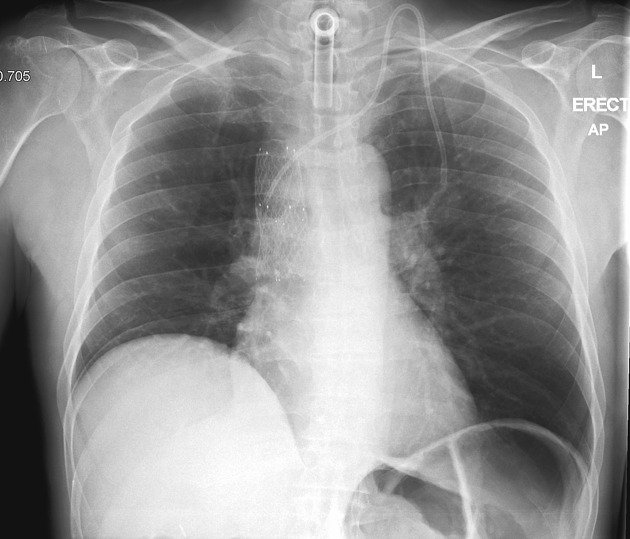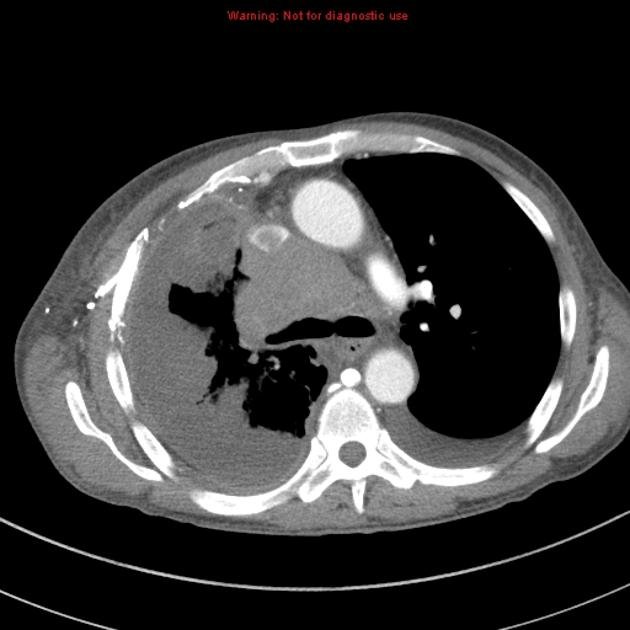Mediastinal Syndrome
content of this page
1- Introduction
2- Anatomical Overview
3- Causes
4- Treatment
Introduction
Mediastinal syndrome refers to a group of symptoms caused by disorders affecting the mediastinum, the central part of the chest cavity containing vital structures like the heart, major blood vessels, and esophagus. This syndrome can result from various conditions such as infections, tumors, or trauma in the mediastinal area. Symptoms may include chest pain, difficulty breathing, coughing, and difficulty swallowing.

Anatomical Overview
This area contains critical structures such as the heart, major blood vessels, esophagus, trachea, and lymph nodes. When conditions like infections, tumors, or inflammation occur in this region, they can lead to symptoms like chest pain, difficulty breathing, coughing, and swallowing difficulties. The specific symptoms depend on which structures are affected and the nature of the underlying condition.For example, if the heart or major blood vessels are involved, symptoms may include chest pain or pressure. If the trachea or bronchi are affected, breathing difficulties or a chronic cough may result. Swallowing difficulties may occur if the esophagus is impacted.

Causes
Infections: Infections such as mediastinitis (inflammation of the mediastinum), tuberculosis, or fungal infections can lead to mediastinal syndrome.
Tumors: Both benign and malignant tumors in the mediastinum, such as thymomas, lymphomas, or germ cell tumors, can cause compression of nearby structures and result in symptoms.
Inflammatory conditions: Conditions like sarcoidosis or mediastinal fibrosis can cause inflammation in the mediastinum, leading to symptoms of mediastinal syndrome.
Trauma: Traumatic injuries to the chest, such as from a car accident or a fall, can damage structures in the mediastinum and result in symptoms.
Autoimmune diseases: Autoimmune conditions like rheumatoid arthritis or lupus can lead to inflammation in the mediastinum and cause symptoms.
Compression: Compression of the mediastinal structures by enlarged lymph nodes (lymphadenopathy), goiter, or other masses can also cause mediastinal syndrome.
Other causes: Other less common causes of mediastinal syndrome include esophageal disorders, such as achalasia or esophageal cancer, and vascular abnormalities, such as aortic aneurysms or dissections.
Treatment
Medications: Depending on the cause of the mediastinal syndrome, medications such as antibiotics (for infections), corticosteroids (for inflammation), or chemotherapy (for cancer) may be prescribed to manage symptoms and treat the underlying condition.
Surgery: In cases where a tumor or other mass is causing compression of mediastinal structures, surgery may be necessary to remove the abnormal growth and relieve symptoms. Surgical procedures may also be performed to repair damaged structures or to drain infected areas.
Radiation therapy: This treatment may be used in conjunction with surgery or as a primary treatment for certain types of cancerous tumors in the mediastinum.
Supportive care: This may include measures to relieve symptoms such as pain management, respiratory support (such as oxygen therapy), or nutritional support.
Monitoring and follow-up: Patients with mediastinal syndrome may require regular monitoring and follow-up care to assess the response to treatment, manage side effects of medications or treatments, and detect any recurrence of symptoms or underlying conditions.